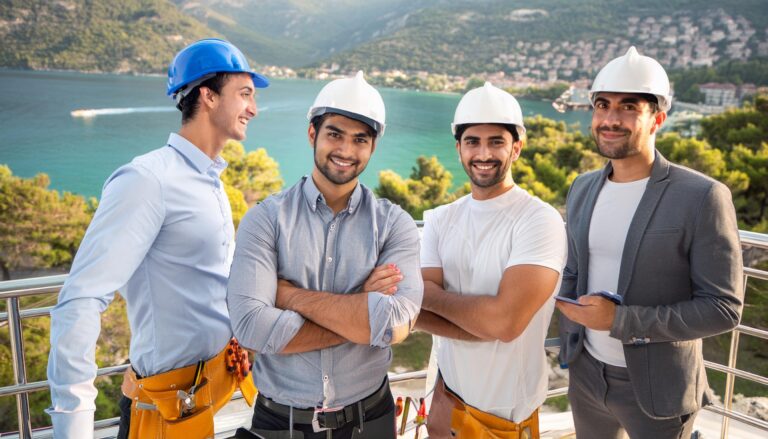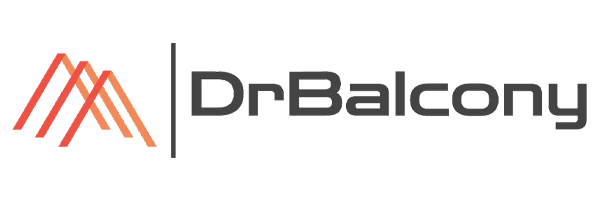What Does A Balcony Inspection Involve?

Table of Contents
As a California property owner or manager, you know that complying with SB 326 and SB 721 is crucial for ensuring the safety and longevity of your balconies. But what exactly happens during a balcony inspection? And how can you prepare for it? Let’s break it down.
The Importance of Professional Balcony Inspections
First things first: California law mandates that inspections be conducted by qualified professionals—licensed architects, structural engineers, or certified building inspectors. Why the strict requirements? Well, balcony safety is no joke. These inspections are designed to:
Trained eyes can spot subtle signs of deterioration, such as water damage, wood rot, or corrosion, that might go unnoticed by the untrained eye. Inspectors evaluate the load-bearing capacity of the balcony, ensuring it can withstand the weight it’s designed for. California has specific balcony safety regulations outlined in SB 326 and SB 721, and professional inspectors know exactly what to look for to ensure your property meets these standards.
Contact DrBalcony for a professional inspection!
Ensure the safety of your balcony and living space with DrBalcony - We're a Tech Engineering firm that specializes in California SB326 & SB721 balcony inspections. Over 300+ completed projects in California.
Request A Free EstimateClick To CallThe Balcony Inspection Process
A thorough balcony inspection typically involves several key steps:
- Pre-Inspection Planning and Coordination:
- The inspection company will contact you to schedule a convenient time for the inspection and discuss access to the balconies and any relevant documentation.
- Initial Assessment and Review:
- The inspector will review the building plans and any previous inspection reports to understand the history of the balconies and identify potential areas of concern.
- Visual Inspection of Balconies and Associated Elements:
- This is where the inspector will thoroughly examine every aspect of the balconies, including the decking, railings, supporting structures, and waterproofing systems. They’ll look for cracks, rust, loose connections, water damage, and any other signs of deterioration.
- Probing and Testing:
- If necessary, the inspector may conduct further testing, such as probing the wood with a tool to check for softness (a sign of rot) or using a moisture meter to measure moisture levels in the wood. They may also check for deflection or movement in the balcony structure.
- Detailed Report and Recommendations:
- After the inspection, the inspector will compile a detailed report that outlines their findings, including any identified issues and their severity. They’ll also provide clear recommendations for any necessary repairs or maintenance, along with estimated timelines and costs.

Your Role in the Inspection Process
While the inspection itself is handled by the professional, you have an important role to play in ensuring a smooth process:
- Provide Access: Make sure the inspector can easily access all balconies and related areas.
- Clear Obstructions: Remove any furniture, plants, or other items that might obstruct the inspector’s view or access.
- Be Available for Questions: The inspector may need to ask you questions about the history of the balconies or any previous repairs that have been done.
- Review the Report Carefully: Once you receive the inspection report, read it thoroughly and ask questions if anything is unclear.
What Happens Next?
If the inspection reveals any deficiencies, it’s crucial to address them promptly to avoid potential safety hazards and legal liabilities. Partner with a reputable contractor who specializes in balcony repairs and understands the California building codes.
Remember, a proactive approach to balcony maintenance is always the best strategy. By scheduling regular inspections and addressing any issues early on, you can protect your property, ensure the safety of your residents, and avoid costly repairs down the road.
Contact DrBalcony for a professional inspection!
Ensure the safety of your balcony and living space with DrBalcony - We're a Tech Engineering firm that specializes in California SB326 & SB721 balcony inspections. Over 300+ completed projects in California.
Request A Free EstimateClick To CallPartner with DrBalcony for Peace of Mind
We know navigating the world of California balcony inspections can be overwhelming. That’s why we offer comprehensive SB 326 inspection services tailored to HOAs and condominiums. Our experienced team provides thorough assessments, detailed reports, and expert guidance to ensure your balconies are safe, compliant, and worry-free.
Let us take the stress out of SB-326 compliance. Contact us today for a free consultation and quote. Your residents will thank you!
FAQ Section: Top Questions & Answers
My property is well-maintained. Do I really need SB-326/SB-721 inspections?
YES! Even with excellent maintenance, hidden issues can develop due to construction errors, material flaws, or severe weather exposure. Inspections are about ensuring those don’t turn into major problems.
Our balconies were inspected a few years ago – isn't that enough?
Unfortunately, no. California laws mandate inspections on a set schedule, often every 6 years. Deterioration can happen quickly, making regular assessments essential.
Can I use my regular handyman for the balcony inspection?
It’s not recommended. Unless they hold specific licenses (architect, structural engineer, etc.) their inspection won’t be considered valid for SB-326/SB-721 compliance.
What if the inspection uncovers major issues?
First, don’t panic! Early detection often means less extensive (and expensive) repairs are needed. Work with your inspector to prioritize fixes, and explore if they offer repair services for a streamlined solution.
I'm worried about the cost of inspections. Are there any resources to help?
Start by getting detailed quotes from multiple companies. Factor in that proactive inspections help you avoid even bigger costs down the line due to neglected problems. Some property management associations offer guidance on budgeting for balcony compliance.
